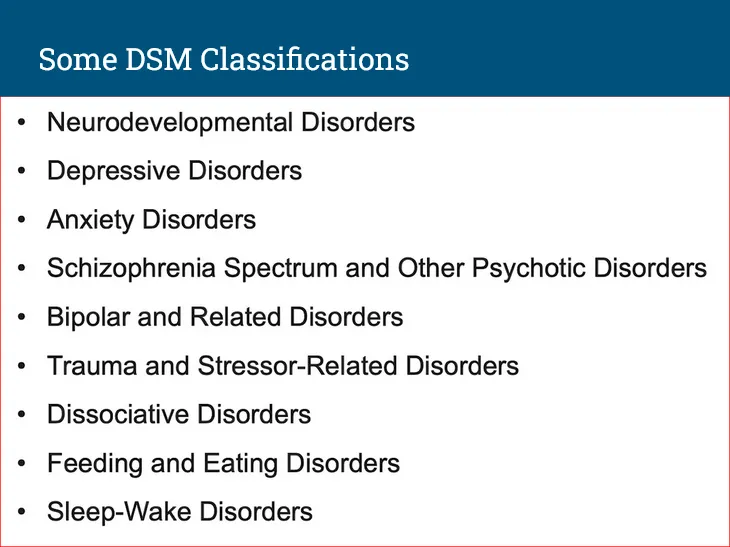Explaining and Classifying Psychological Disorders
1/15
There's no tags or description
Looks like no tags are added yet.
Name | Mastery | Learn | Test | Matching | Spaced | Call with Kai |
|---|
No analytics yet
Send a link to your students to track their progress
16 Terms
Deviation (Deviant)
Behavior that is not typical for one’s culture
Distress
When behavior causes anxiety or emotional pain
Dysfunction
When behavior interferes with daily life
DSM (Diagnostic and Statistical Manual)
Book by American Psychiatric Association that classifies mental disorders (does not explain causes)

ICD (International Classification of Diseases)
Global manual (by WHO) for diagnosing mental and physical disorders (current version: ICD-11)
Behavioral perspective
Focuses on learned behaviors through rewards/punishments (e.g., fear reinforced by avoiding something)
Psychodynamic perspective
Focuses on unconscious conflicts and early childhood experiences
Humanistic perspective
Focuses on personal growth, lack of support, and unmet potential
Cognitive perspective
Focuses on negative thinking patterns that lead to disorders
Evolutionary perspective
Focuses on how behaviors help or hurt survival and reproduction
Sociocultural perspective
Focuses on how society and culture influence behavior
Biological perspective
Focuses on genetics, brain chemistry, and biology
Eclectic perspective
Uses a mix of perspectives to understand and treat disorders
Maladaptive learned associations
Bad habits or fears learned from experience that cause problems
Biopsychosocial model
Mental health is affected by biology, thoughts, and social environment
Diathesis-stress model
Mental illness happens when a person with a vulnerability (diathesis) faces stress